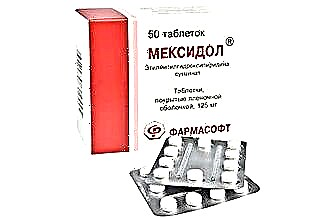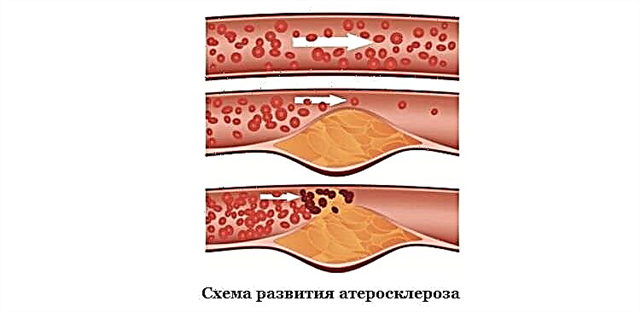One of the most common diseases of the heart and blood vessels is arterial hypertension, characterized by persistent high blood pressure and complications from various organ systems.

Basic information
The amount of pressure that blood exerts on the walls of blood vessels is one of the most important indicators of the health of the body. It is measured in millimeters of mercury (mm Hg). In this case, 2 quantities are determined:
- The systolic (upper) pressure with which the blood acts on the vessels when the heart contracts and releases it into the artery.
- Diastolic (lower), with which the blood presses on the walls in a relaxed state of the heart.
The norm is considered to be a pressure of about 120 to 80 mm Hg. st (top and bottom, respectively). Small deviations to the right and left sides of both indicators are allowed (within 5-10 units). At the same time, different states of the body correspond to their own levels of pressure - during physical activity, it increases in the range of 15-20 units, which is considered a natural physiological reaction of the body.
Exceeding the norm are considered indicators from 140/90 and more. It is this condition that is called arterial hypertension.
Depending on the specific value, 3 degrees of the disease are distinguished:
- Pressure in the range 140/90 - 159/99;
- Pressure in the range 160/100 - 179/109;
- Pressure in the range of 180/110 and above.
There is often confusion between the terms arterial hypertension and hypertension (essential hypertension). The concepts are very similar as both describe high blood pressure. However, there is a significant difference between them:
- Hypertension characterizes constant, persistent high blood pressure and is a medical diagnosis of heart and vascular disease (formulated as hypertension stage 1, 2 or 3).
- Hypertension is a temporary, single or recurrent increase in blood pressure caused by:
- physical activity;
- emotional stress;
- taking certain drugs or foods (such as coffee).
Thus, if arterial hypertension is a syndrome that includes certain complications, then hypertension is a short-term malaise associated with increased blood pressure. In practice, both concepts are often used by patients with the same meaning.
Causes of the disease
Almost always, hypertension is caused by several reasons and does not develop immediately, but over a long period of time. The factors giving rise to pathology can be divided into several groups, depending on their origin.
- Human lifestyle:
- abuse of foods that lead to obesity and high blood cholesterol levels;
- excessive salt intake;
- sedentary lifestyle and obesity;
- smoking and excess alcohol;
- constant stress loads.
- Chronic diseases:
- type 1 and type 2 diabetes mellitus;
- endocrine system disorders;
- renal failure.
- Genetic predisposition (to diabetes, obesity, congenital heart disease).
- Age factor (as they grow older, the performance of the heart and the strength of the walls of blood vessels begin to gradually decrease).
- Sexual factor - hypertension occurs in women less often than in men, due to 2 main reasons:
- the female sex hormone estrogen has a good effect on the elasticity of the walls of blood vessels;
- men tend to lead a less regular lifestyle.
 Health is half dependent on lifestyle, which a person can control and change to a large extent. Even minimal adherence to the requirements of a healthy lifestyle will not only lead to an improvement in well-being in general, but will also help prevent many of the complications that arterial hypertension causes.
Health is half dependent on lifestyle, which a person can control and change to a large extent. Even minimal adherence to the requirements of a healthy lifestyle will not only lead to an improvement in well-being in general, but will also help prevent many of the complications that arterial hypertension causes.
Consequences
Complications of arterial hypertension develop gradually and usually have a complex effect on different organ systems.
Heart disorders
Essential hypertension almost always causes complications in the activity of the heart, since this organ is directly combined with the vessels into a single system. The main reason is that the load on the organ increases, so the heart muscle is forced to contract more in order to ensure a normal level of blood supply throughout the body. Accordingly, the heart muscle requires more oxygen, and myocardial cells, failing to cope with the task, gradually begin to die off.
In critical cases, this leads to the death of entire sections of the muscle, which is called myocardial infarction, which is often fatal. These processes develop gradually and at different stages can manifest themselves with the following symptoms:
- heart palpitations that occur for no apparent reason;
- pain in the left side - aching and tingling (with a heart attack, sharp);
- frequent shortness of breath and pain in the heart, even with little physical exertion.
Such symptoms do not necessarily indicate high blood pressure, but in any case they indicate certain malfunctions in the body and require immediate medical attention. The disease is always easier to detect and treat in the early stages than to deal with the already severe consequences.
Kidney disease
The relationship between the level of pressure and the activity of the kidneys is explained by the fact that they process a huge amount of water entering the body, and remove its excess along with some substances in the urine. Accordingly, complications of arterial hypertension often affect these organs. Most often, renal failure develops, which has the following symptoms:
- Unexplained fatigue, lethargy, persistent apathy.
- Increased swelling (the face and limbs become swollen).
- A sharp decrease in appetite, nausea, bouts of vomiting.
Often these signs are not paid attention to, attributing them to temporary phenomena. However, before drawing any conclusions, it is imperative to carry out diagnostics.
Brain pathologies
Symptoms in the head are usually the earliest signs of hypertension. They are associated with the fact that the brain penetrates many large and small vessels that provide blood supply. Even a small increase in blood pressure will inevitably affect the condition of the head. The following phenomena are observed:
- Frequent headaches that occur in different places (mainly, the temporal and occipital lobes).
- Constant dizziness, especially against the background of even mild physical exertion.
- Systematic ringing in the ears.
- Deterioration of the processes of memorization, the appearance of absent-mindedness.
IMPORTANT! Usually few people pay attention to such symptoms. At the same time, if nothing is done, the situation will only worsen. Subsequently, this often ends with a stroke (cerebral hemorrhage), which is accompanied by paralysis, speech difficulties and often death.

Prophylaxis
Since such processes always develop over a long period of time, it is more than realistic to influence them and prevent complications. Moreover, the sooner the necessary measures are taken, the easier it will be to stabilize the state of the body.
Proper nutrition is one of the basic requirements of a healthy lifestyle. It has a beneficial effect not only on the level of pressure, but also on a number of other physiological indicators (the level of sugar, gastric juice, bile and many others).
Diet recommendations look like this:
- Significant limitation of salty foods.

- Avoiding food containing large amounts of animal fats.
- Reducing or avoiding alcohol consumption altogether.
- Significant restriction in the use of fried foods.
- Cautious consumption of foods that increase blood pressure (coffee, spicy and spicy foods).
- Compliance with the correct diet - fractionally 4-5 times a day, the absence of too abundant meals, the last meal no later than 4-5 hours before bedtime.
Moderate and systematic physical activity trains muscles, provides blood supply to almost all parts of the body, and strengthens the heart and blood vessels through constant training.
You can choose almost any type of activity, while it is important to take into account the following features:
- Exercises should be continuous, not episodic - so, at least 3-4 hours a week should be devoted to sports activities.
- The load should be moderate - you always need to focus on your well-being and not overstrain the body, otherwise the effect of the exercise will be exactly the opposite. An important criterion for the correct amount of load is the feeling of light, pleasant muscle fatigue after exercise.
- If there are any abnormalities in the joints or heart disease, it is imperative to take them into account when choosing the type and volume of the load. In this case, it is best to consult a doctor.
- Exercises should be enjoyable - it has a beneficial effect on the psyche and perfectly motivates you to the next activities.
It is important to provide the body with adequate sleep (7-8 hours a day) and comply with the minimum requirements for work and rest. Both overwork and insufficient workload are bad. But rest is not a passive, but an active state associated with a change in the type of activity. In this sense, even a walk in the fresh air is much preferable to spending time in front of the TV or computer.
A healthy lifestyle allows you to avoid severe complications of arterial hypertension and other diseases. At the same time, almost everyone can comply with its requirements at least at the minimum level. It all depends on the person himself and his relationship to his own body.




